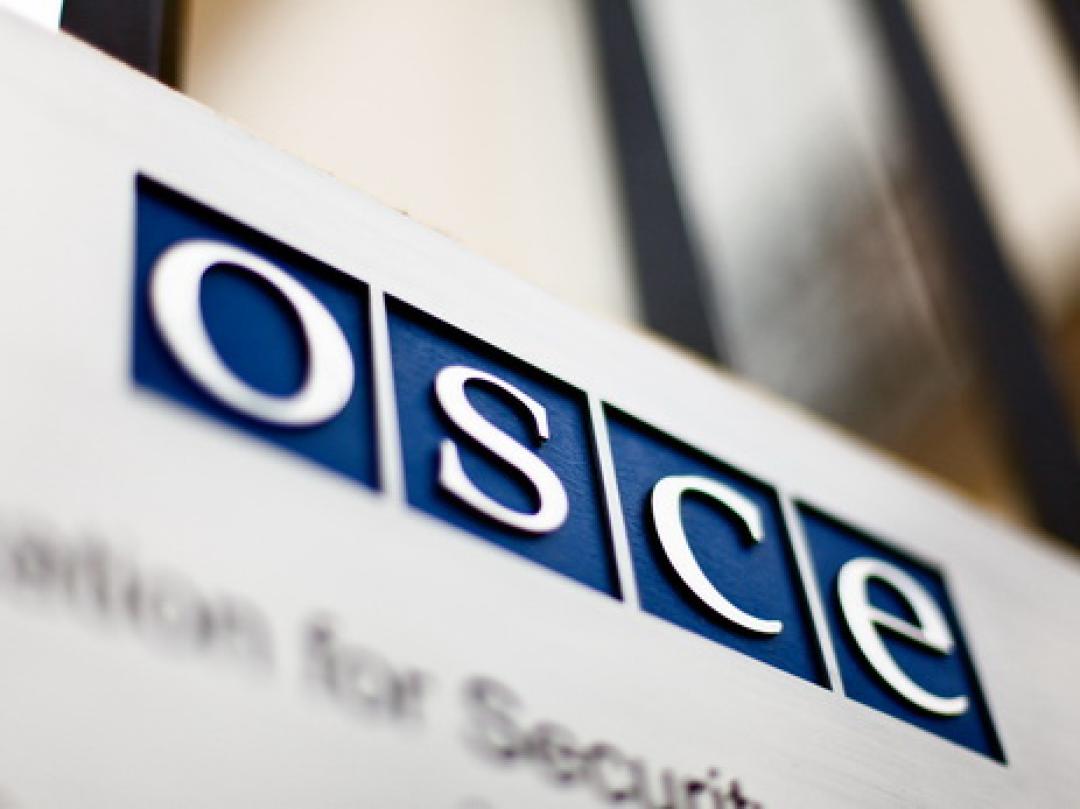
Armenian PM Proposes Troop Withdrawal at OSCE PA Session

Yerevan proposes to Baku the absence of troops on either side of the administrative border of the Soviet Union and the resolution of issues related to enclaves and exclaves. Armenian PM Nikol Pashinyan made this statement on November 18 at the 21st autumn session of the Parliamentary Assembly of the Organization for Security and Cooperation in Europe (OSCE PA) in Yerevan.
Pashinyan pointed out that Yerevan and Baku currently use different diplomatic languages and often struggle to understand each other.
Nikol Pashinyan also mentioned the objective reasons for this, "a long-standing conflict with a specific historical context, thousands of casualties, and you struggle to face their loved ones, dozens of prisoners whose family members have no answers, an atmosphere of hatred that prevailed for decades, and suspicions that bad things are hidden behind constructive statements." He emphasized, "What I am saying applies, at one point or another, to both Armenia and Azerbaijan."
Pashinyan highlighted that Azerbaijan, as an example, has not publicly acknowledged the three principles that have already been agreed upon and has not affirmed its commitment to them. This, according to him, further worsens the atmosphere of distrust.
Pashinyan noted that there is both good and bad news regarding the Armenia-Azerbaijan peace process. The Prime Minister of Armenia noted that by the Almaty Declaration of 1991, there is an agreement between the parties on mutual respect for territorial integrity and reopening of transport lines based on the principles of sovereignty, jurisdiction, reciprocity, and equality of countries. "This happened as a result of the meetings that the President of Azerbaijan and I held in Brussels with the mediation of the President of the Council of the European Union, Charles Michel. Those agreements were mentioned in Charles Michel's statements dated May 14 and July 15 at the end of the tripartite meetings," Pashinyan emphasized.
As for the bad news, the Prime Minister of Armenia said that Azerbaijan does not confirm its commitment to the agreed principles of the peace treaty and that this deepens the atmosphere of mistrust. He expressed concern that Azerbaijani officials call Armenia Western Azerbaijan. "This appears to be a preparation for organizing a new war, a new military aggression against Armenia, and is one of the main obstacles to the progress of the peace process," Pashinyan added.
Response from Azerbaijan
Commenting on Nikol Pashinyan's speech, official Baku noted that he expressed contradictory opinions and accused the Armenian side of delaying the peace process.
"It is unacceptable for the Armenian side to make claims against Azerbaijan instead of presenting comments on the draft agreement 'on the establishment of peace and interstate relations' and starting negotiations on the agreement, which it has been delaying for more than two months," the report said.
"The fact that the Prime Minister of Armenia stated that there is an agreement between the two countries on the basic principles and border demarcation, that Armenia and Azerbaijan do not have territorial claims, and that our country is preparing for war against Armenia is an indication of how contradictory the Armenian officials are in their statements," it said.
"Despite the return of nearly 100 Armenian prisoners by Azerbaijan, the fact that the Armenian side violated the confidence-building efforts to return the captured persons who crossed the border by mistake and captured 2 Azerbaijani soldiers shows that the Armenian side does not take seriously the issue of the return of the detained persons," the ministry added.
"The desire of the Prime Minister of Armenia for the representatives of the 'West Azerbaijan Community' to return to their native land in a safe and dignified manner and their propaganda in this direction as 'preparation for aggression' against Armenia is completely groundless. We call on the Armenian side, which continues aggressive slanderous rhetoric against our country using various international platforms, to stop making statements that harm the prospects of peace and to use the historical opportunities created to transform the South Caucasus region into a place of peace and cooperation," the report noted.
See Also


Simonyan: “Armenia Should Trade with Turkey and Azerbaijan Instead of Closing Borders”

Mirzoyan Meets US Deputy Assistant Secretary Joshua Huck

Azerbaijani President Holds Talks with UAE and German Business Delegations on Economic Cooperation

Grigoryan Confirms Armenia’s Readiness to Dissolve OSCE Minsk Group Upon Peace Treaty Signing

